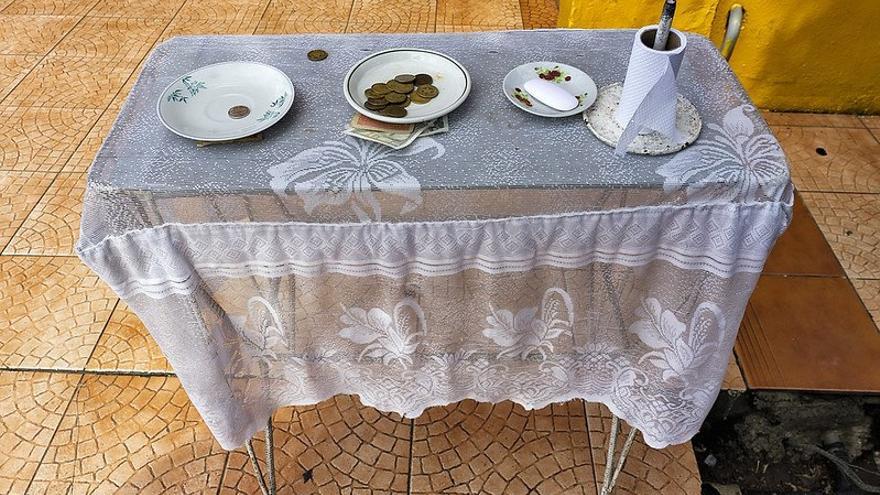
![]() 14ymedio, Zunilda Mata, Havana, 18 October 2019 — The Cuban State has a problem with public toilets, as if socialism and the presence of sanitary services were contradictory concepts permanently at odds with each other. The problem has worsened so much in the last half century that it has even reached the pages of literature.
14ymedio, Zunilda Mata, Havana, 18 October 2019 — The Cuban State has a problem with public toilets, as if socialism and the presence of sanitary services were contradictory concepts permanently at odds with each other. The problem has worsened so much in the last half century that it has even reached the pages of literature.
The writer Manuel Pereira, in his novel Toilet, presents a protagonist in search of the lost bathroom. Gaitan travels through chimeric and ghostly worlds that lead him to descend to Dante’s hell and reach Bosch’s Garden of EarthlyDelights, where he discovers a prototype of an ancient toilet, a human fantasy of eschatological pleasure.
In reality, the lack of bathrooms and the poor state of those located in public spaces such as stadiums, train terminals and cinemas reached the point that in July 2013 Raúl Castro lamented before the National Assembly that the Island would end up tolerating as normal “meeting physiological needs in streets and parks.”
In November of that same year, the Official Gazette published new measures to allow private businesses to provide public toilets. In the decree, which established the price list, these places were divided into five categories so that self-employed workers could enter into contracts with state entities that could not guarantee a clean and functional sanitary service.
Over time, most of the bathrooms available in a city such as Havana, and with the exception of those located in the common areas of hotels, require payment, or at least that the customers must leave some coins to be entitled to receive a piece of toilet paper. Tips, rather than a gesture of thanks, are almost forced.
Those who do not have money to pay for access to the bathroom must withstand the desire or end up meeting their needs behind a tree, in a dark corner or — in less discreet cases — in the middle of public roads. But having some coins is no guarantee of finding a clean toilet with water and hand soap. Sometimes the payment is just an “open sesame” to access a place that, despite being managed by an individual, is still governed by state indolence.
________________
The 14ymedio team is committed to practicing serious journalism that reflects Cuba’s reality in all its depth. Thank you for joining us on this long journey. We invite you to continue supporting us by now becoming a member of 14ymedio. Together we can continue transforming journalism in Cuba.
